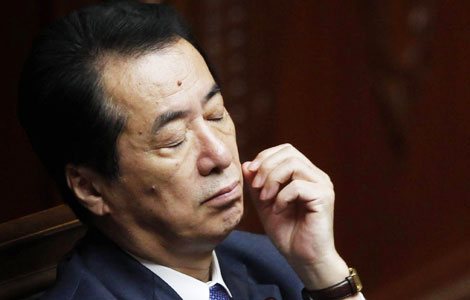Stricter standards to be set for plants
Updated: 2011-08-24 07:48
(China Daily)
|
|||||||||||
BEIJING -?China's environmental authorities are mulling over stiff new emissions standards for thermal power plants amid concerns that they may increase costs and lead to more losses.
The new standards, consistent with an earlier version issued in January, will be released for public consultation in late August, according to the Ministry of Environmental Protection.
In the latest version, the nitrogen oxide emission cap limit will be cut by half to 100 milligrams per cubic meter for thermal plants with denitration facilities or those designed to have such facilities. Sulfur dioxide emissions are limited to 100 milligrams per cu m for newly-built thermal plants.
The new version will add emission standards of air pollutants and mercury emissions in key areas, according to the ministry.
The ministry consulted with major power companies and environmental protection agencies before releasing the earlier version in January.
Industry insiders say stricter standards will be good news for denitration facility manufacturers with advanced technologies as they will have an advantage in this booming market.
The environmental authorities said the country might have difficulties in capping nitrogen oxide emissions in the second half of this year, most of which are emitted by thermal plants.
The government so far has no plan to increase power prices in order to subsidize thermal plants for more expenditure on denitration facilities due to fears that it may cause more inflationary pressure.
The stricter standards have triggered concern that they might force thermal plants to spend more on pollutant processing facilities and hence increase the financial burden on those that are already in the red.
China's top five power companies in the thermal power sector posted an 18.1-billion-yuan ($2.8 billion) loss in the January-July period, 11.3 billion yuan more than the same period of last year, according to a report by the China Electricity Council.
- Live Report: Gadhafi says withdrawal tactical move
- Tougher penalties for sea pollution
- Moody's cuts Japan rating to Aa3
- 5 detained over toxic waste dumping
- 26 trapped after coal mine floods
- Japan Prime Minister on way out
- Live Report: Gadhafi on the run as rebels fight
- More trains slow to improve safety
Hot Topics
Anti-Gay, Giant Panda, Subway, High Speed Train, Coal Mine, High Temperature, Rainstorm, Sino-US, Oil Spill, Zhu Min
Editor's Picks

|

|

|

|

|

|






